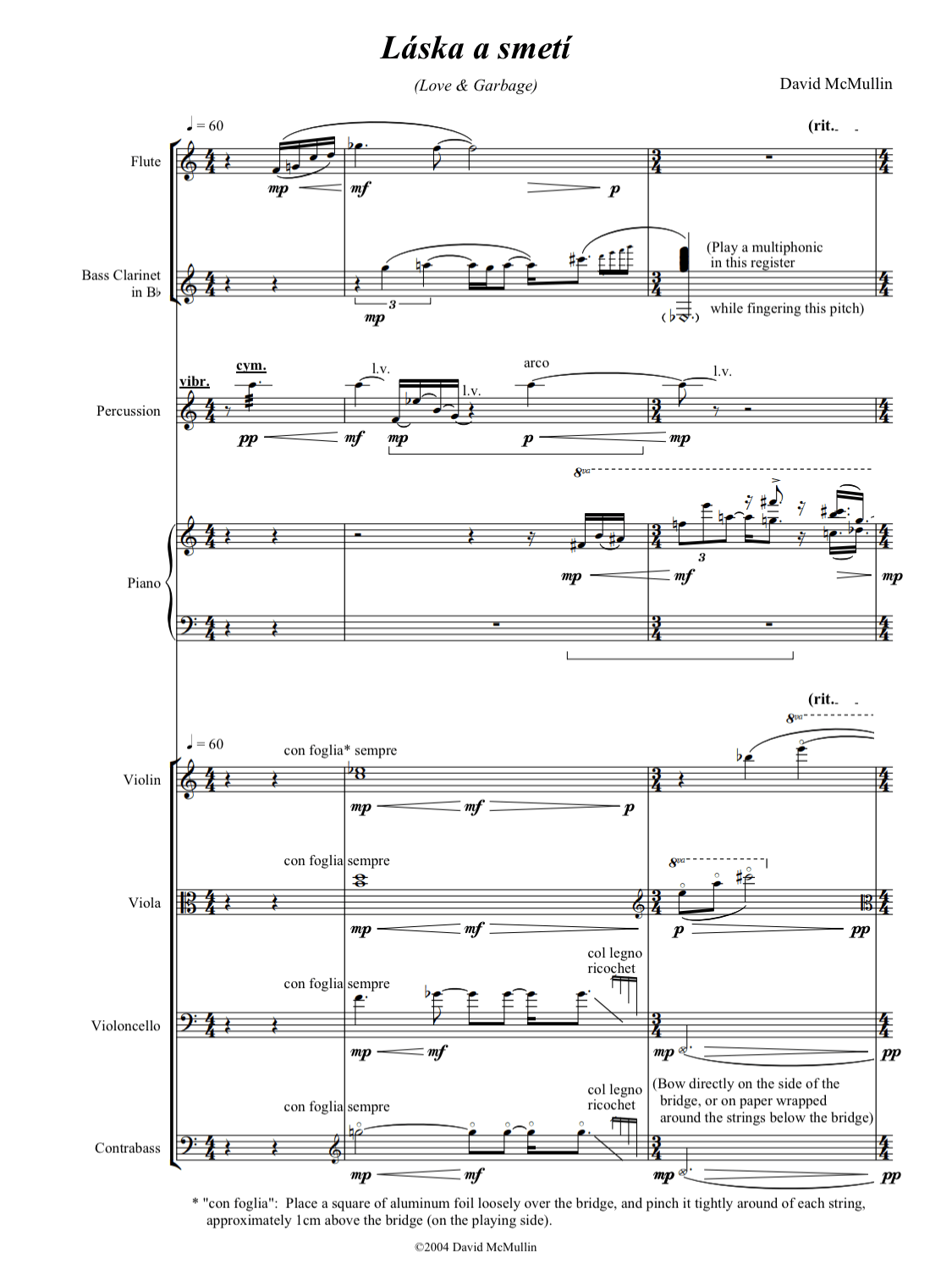After Czech author Ivan Klima’s novel of the same title (Love and Garbage), which jumps around in time so frequently and seamlessly that it seems to exist outside of time entirely.
MoEns: (?), flute; Kamil Doležal, bass clarinet; Martin Hybler, percussion; Hanuš Barton, piano; David Danel, violin; Ludmila Sovadinová, viola; Milada Gajdová, cello; David Pavelka, contrabass; Miroslav Pudlak, conductor. December 3, 2004, Martinů Hall of Lichtenstein Palace, Prague
Láska a smetí (Love & Garbage) was commissioned by Atelier 90 of Prague, who presented its premiere performance by the Mondschein Ensemble (Moens) on December 3, 2004, at the Martinů Hall of the Lichtenstein Palace in Prague, as part of a full concert of my works. Max Lifchitz conducted the US premiere June 13, 2006 in New York, with North/South Consonance.
The title comes from a novel by Czech author Ivan Klima, about a writer who works temporarily, as Klima himself did, as a street sweeper in Prague. The narrator feels a kind of detachment from everything around him – he is in a way only pretending to be a street sweeper, but while he is not writing he cannot be sure he is really a writer either, and he is at the same time paralyzed by indecision in his personal life. His detachment makes him a rather hesitant participant in life, but an acutely insightful observer.
As he wanders through the streets of Prague with his cleaning crew, he relates their stories and his own, as well as his immediate impressions and reminiscences of other times and places. Klima’s treatment of time was particularly interesting to me. The narrative does not proceed chronologically, but freely covers a span of many years, moving backward and forward fluidly and staying in one time-line for only a few paragraphs or pages at once. These frequent shifts of temporal perspective come without warning or demarcation, but the transitions and juxtapositions are seamless rather than abrupt. The result is not a series of discrete scenes or vignettes, but a masterful overarching meditation that seems to be outside of time.
I have attempted in this piece to reflect both the introspective atmosphere of the novel and its feeling of suspended tension, of being always in-between. As the novel jumps around in time, the piece changes texture often, without, I hope, losing its formal cohesion or sense of direction. Intrigued by the idea of a beautiful book about picking up garbage, I tried to write beautiful music using some sounds made from garbage-type materials, such as aluminum foil, paper and cardboard. My treatment of harmony is also influenced by Klima’s comment in the novel that garbage, like everything else, can never really be destroyed, only moved around and transformed. Similarly, the dissonant intervals of the first chord continue to pervade the entire piece, but they are presented in ways that become less harsh as the piece progresses.
